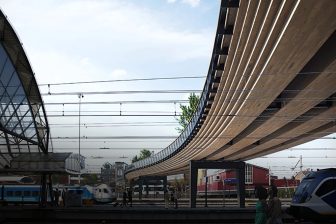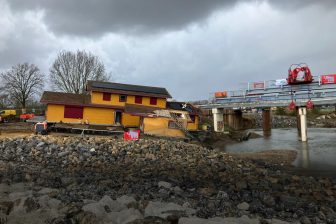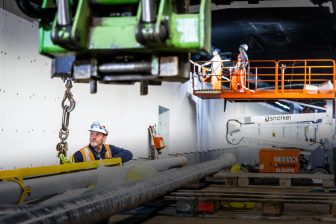World’s first fully automated metro to operate in Nuremberg
German Transport Minister Tiefensee inaugurates the RUBIN system
Erlangen, Germany – The inauguration of passenger service on Metro Line 3 of the Nuremberg transit authority (VAG) is truly a unique occasion. Not only is it the first fully automated subway to operate in Germany, during its introductory phase it will also be the first driverless metro in the world to share a section of line with conventionally driven trains. Known under its German acronym RUBIN (for the realization of an automated metro in Nuremberg) and developed by Siemens Mobility, this metro system was officially opened for service this past weekend by German Transport Minister Wolfgang Tiefensee.
Dr. Heinrich Hiesinger, CEO of Siemens’ Industry Sector, called RUBIN “a showcase project”. Worldwide it will be the model for the successive conversion and modernization of conventional metro systems to automated operation. Siemens is the only supplier to date that has implemented such a project. RUBIN’s U3 is expected to operate for one year in mixed running on a section of track shared with the conventional trains of Line U2. By the end of 2009, this existing Line U2 is to be converted to automated operation as well. After that, train operations on both lines will be fully automated. Extension work on Line U3 is still in progress at the “Kaulbachplatz” and “Friedrich-Ebert-Platz” metro stations.
Fully automation enables the trains to run at headways of 100 seconds during peak hours instead of at the previous 200 seconds intervals in normal operation or 150 seconds in mixed operation. In order to meet the demand generated by major public events, dispatchers can deploy additional trains independent of regularly scheduled metro service. They can pull in extra trains from the stabling tracks simply by pressing a button. At the heart of this automated operation is the ATC technology with its two main components for automatic train control and automatic train protection. Computers located along the line provide a continuous link between these two systems and a high-performance computer in VAG’s operations control center. This master computer constantly compares the data received from the trains and the line and is therefore able to pinpoint the exact position of every train at any time – in fractions of a second.
The Siemens Industry Sector (Erlangen, Germany) is the world´s leading supplier of production, transportation and building technologies. Integrated hardware and software technologies combined with comprehensive Industry-specific solutions enable Siemens to increase the productivity and efficiency of its customers in industry and infrastructure. The Sector consists of six Divisions: Building Technologies, Industry Automation, Industry Solutions, Mobility, Drive Technologies and Osram. In fiscal 2007 (ended September 30), Siemens Industry generated sales of approximately EUR40 billion (pro forma, unconsolidated) with around 209,000 employees worldwide.
The Siemens Mobility Division (Erlangen, Germany) is the internationally leading provider of transportation and logistics solutions. With its "Complete Mobility" approach, the Division is focused on networking the various modes of transportation in order to ensure the efficient transport of people and goods. Complete Mobility combines the company’s competence in operations control systems for railways and traffic control systems for roadways together with solutions for airport logistics, postal automation, traction power supplies and rolling stock for mass transit, regional and mainline services, as well as forward-looking service concepts.
U las zojuist één van de gratis premium artikelen
Onbeperkt lezen? Profiteer nu van de introductieaanbieding voor € 10,- per maand.
Bent u al abonnee?



